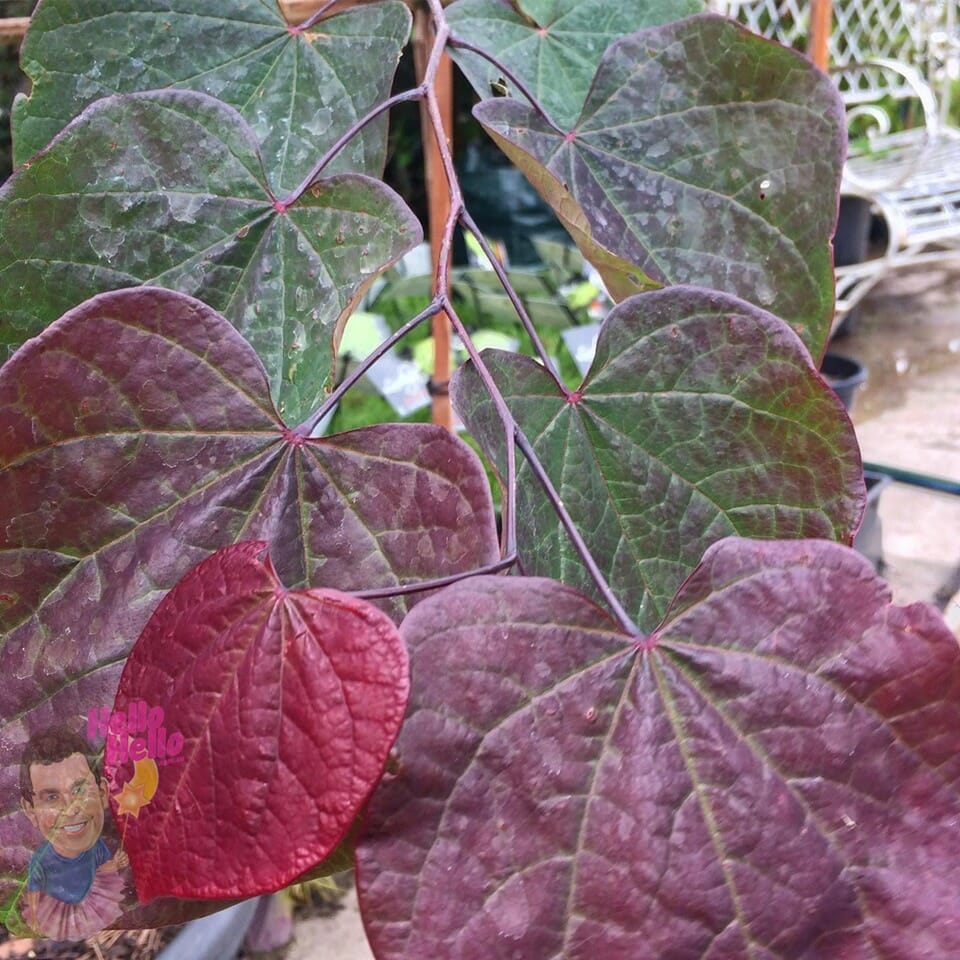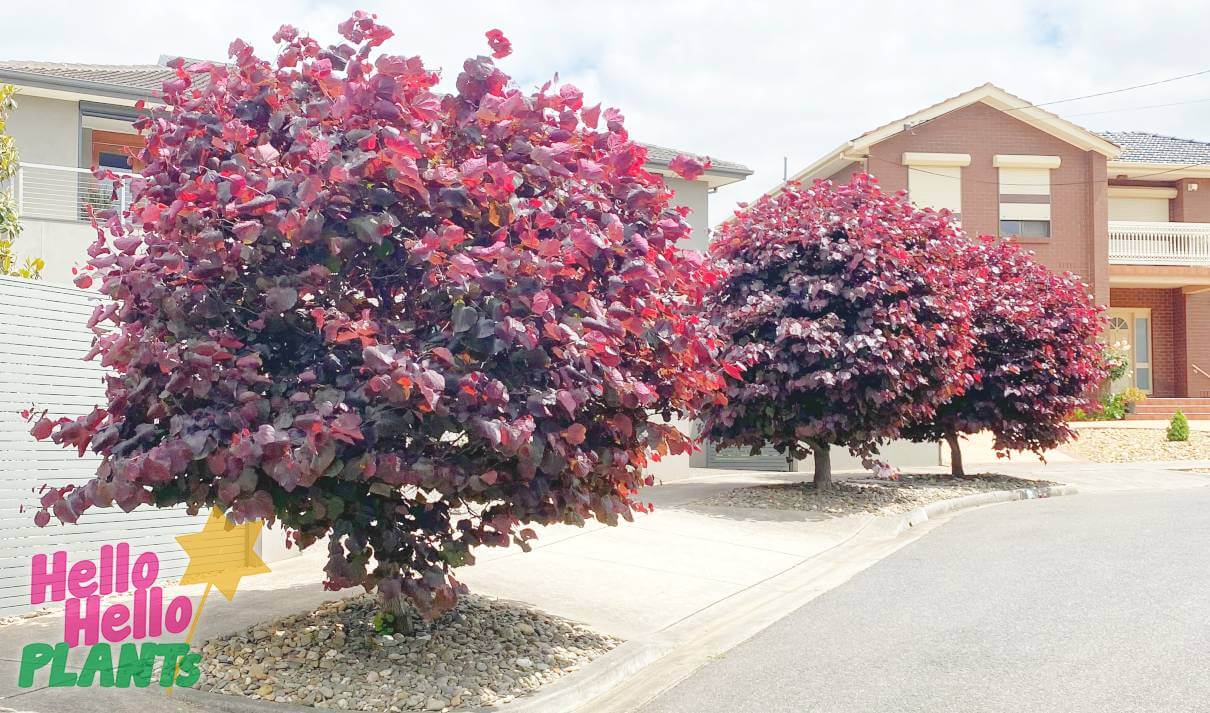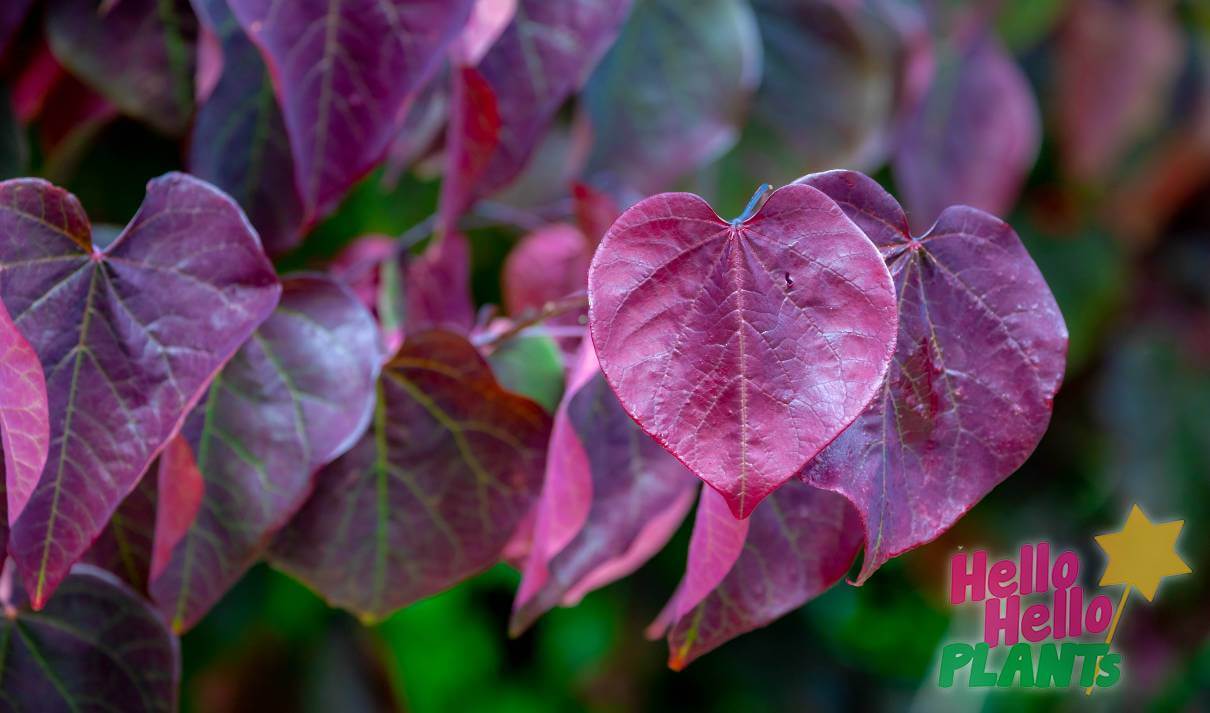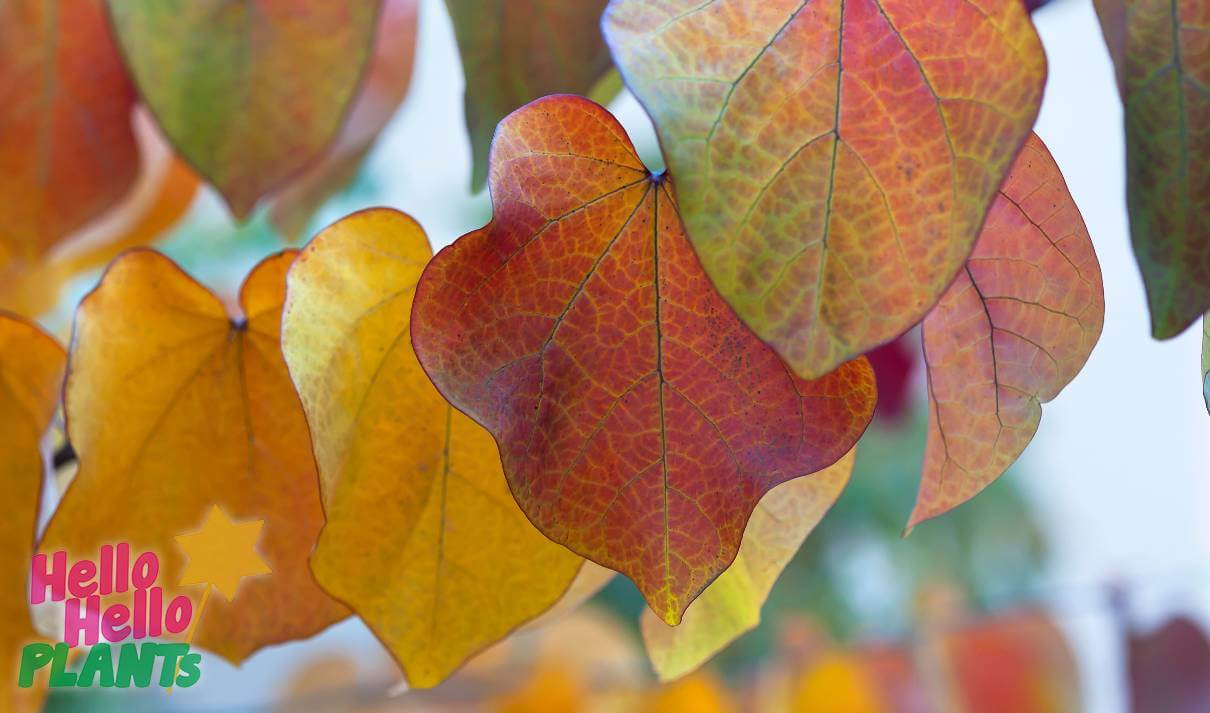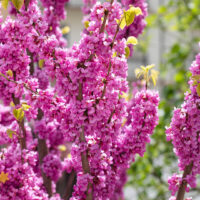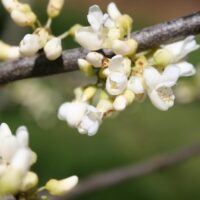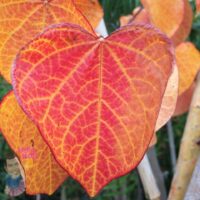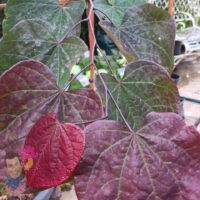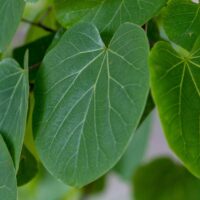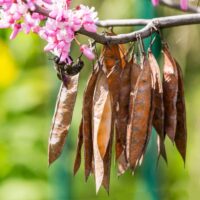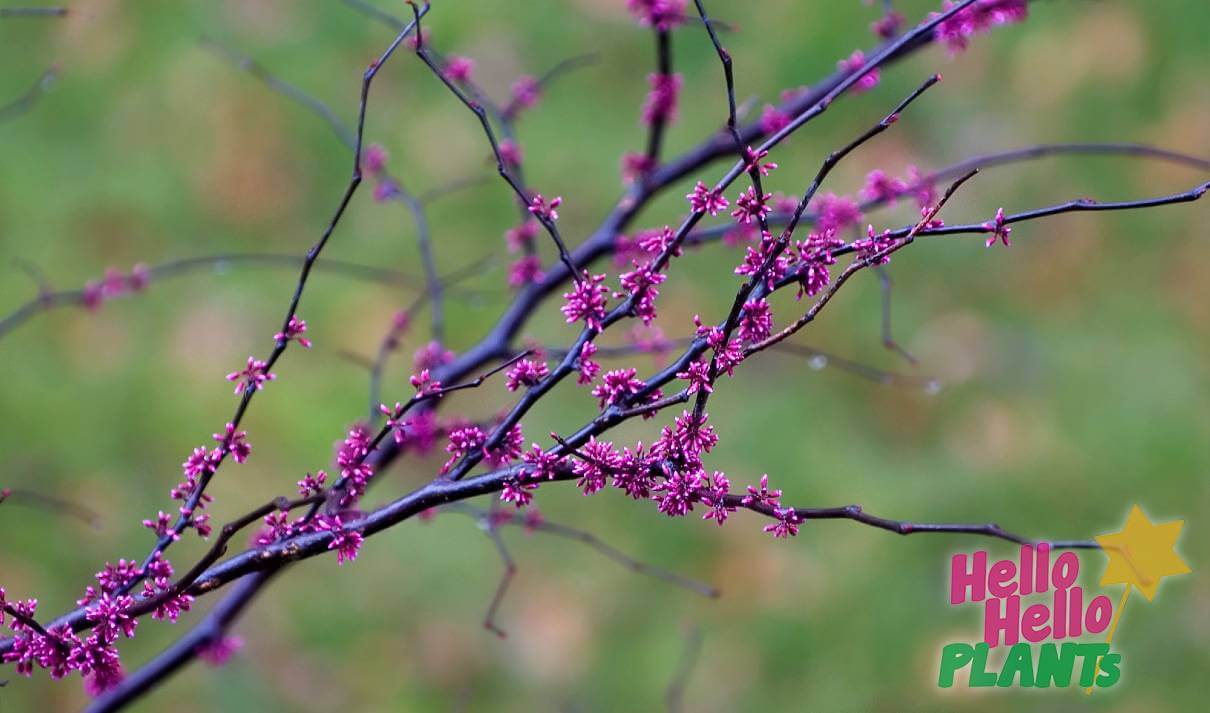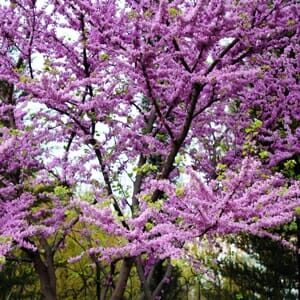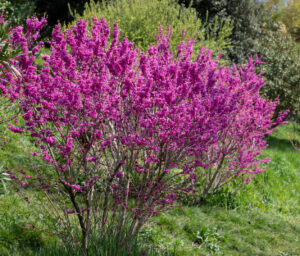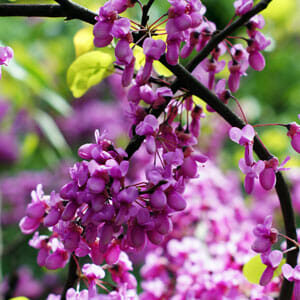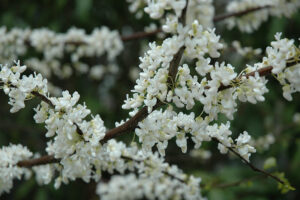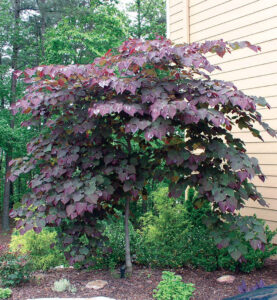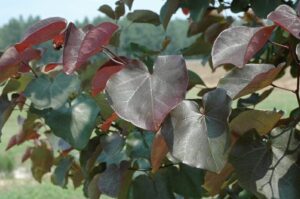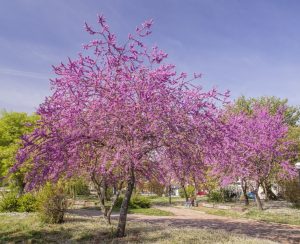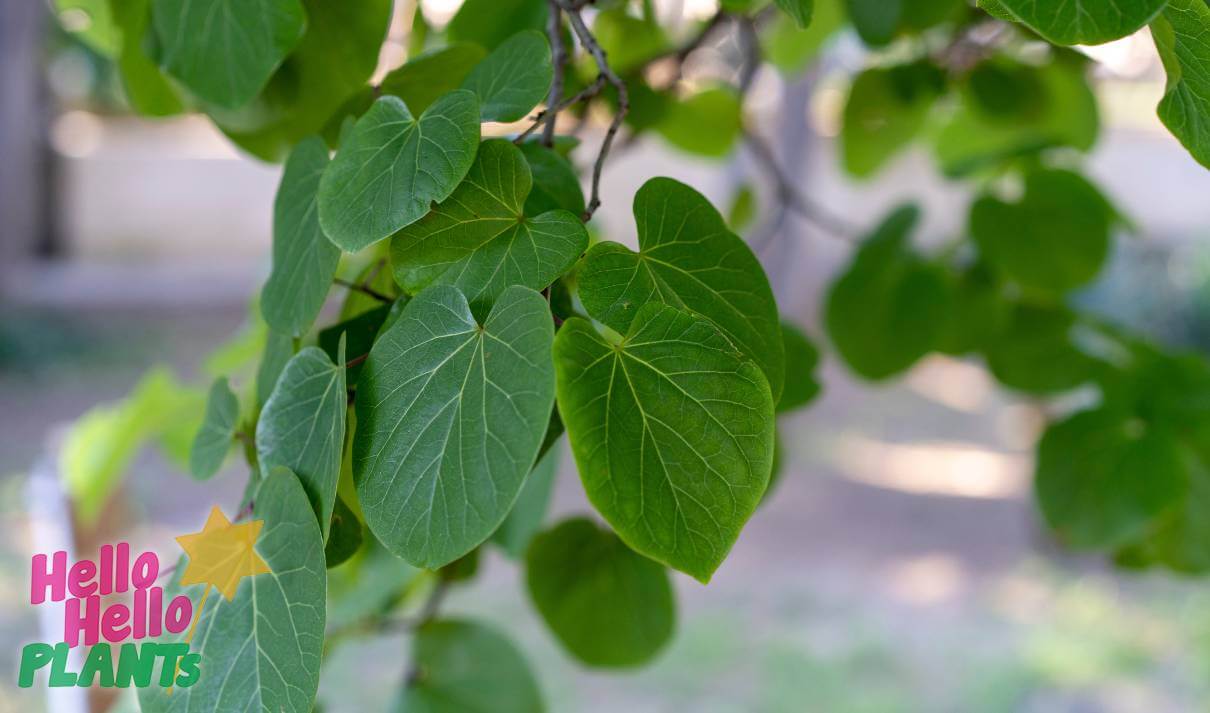Cercis are incredibly unique feature plants. Grown in both shrub and tree forms, these gorgeous plants produce large, delicate heart-shaped leaves upon dark branches, coming in green to rich purples and reds. In the autumn these leaves turn vibrant orange, reds and yellows before falling and baring the smooth, sleek bark. In the spring is when this plant really shines! Pink or magenta blossoms burst along the bare branches and stems, covering the plant in a vibrant glow.
Redbuds enjoy a fertile, well draining soil to look their absolute best. They tolerate sandy loam and clay loam soils as well as frost, but their leaves will start to curl in extreme heat and drought without enough water or shade from the afternoon sun.
Plant Type: Tree
Uses: Feature Tree, Shade Tree
Garden Types: Cottage, Hampton, Japanese, Woodland, Lush & Leafy
Care
Sun Requirements: A full sun or part shade position, ideally shaded by harsh afternoon sun in hot climates.
Water Requirements: Water regularly from spring through to autumn. In hot climates, make sure plant is watered daily to maintain lush foliage.
Soil Requirements: Prefers moist, well-drained loamy soil. Will tolerate sandy-loam and clay-loam soils. Cercis do not tolerate compacted, hard clay or soggy areas.
Fertilizing: Use an all purpose fertiliser such as Charlie Carp All Purpose or Osmocote Total All Purpose during the spring and throughout the warmer months.
Pruning: Late winter just before budswell or in the spring just after the blossoms are spent. Pruning whilst the tree is dormant and bare makes it easier to see what needs to be removed and the true form of the tree. For more on pruning, see our Pruning advice page.
Tolerances: Frost. Does not tolerate soggy soils, wind or drought.
Pests & Diseases: Canker, dieback, leaf spot, blight and mildew
Key Features
Flower: Small, pea-like magenta/pink or white flowers appear along bare branches in spring.
Foliage: Heart-shaped foliage. Colours range from green to deep purple. On purple foliage varieties such as the Forest Pansy, new growth is dark purple, which becomes lighter with age. On green varieties the new growth is a light lime green, which darkens with age. In the autumn the foliage turn reds, oranges, purples and yellows.
Edible: No
Toxicity: Contains toxin called saponin. However, saponin usually passes straight through the system with little to no effect. This tree is not known to be toxic to animals or humans.
Attracts: Bees, Butterflies
Which Cercis To Choose?
There are several varieties of Cercis to choose from. Here’s a quick breakdown of each of these varieties.
Green Foliage
Cercis varieties with dark green to vibrant lime green heart shaped foliage.
Purple Foliage
Redbuds that boast rich, purple foliage throughout the warmer months instead of the regular green.
Green & Red Foliage
New varieties with vibrant red new growth, emphasizing that gorgeous heart-shaped foliage
Green & Gold Foliage
Extra vibrant green foliage turning lime green to gold during the warmer months
Still having trouble deciding which Cercis is right for your job? Check out our quick comparison chart below!
| Genus | Foliage Colour | Flower Colour | Average Max. Size | |
|---|---|---|---|---|
| ‘Avondale’ | chinensis | Green | Dark Pink | 3m x 2m |
| ‘Chinese Redbud’ | chinensis | Green | Purple pink | 5m x 5m |
| ‘Flame’ | canadensis | Green & Red | Double-petal Pink | 5m x 4m |
| ‘Forest Pansy’ | canadensis | Dark purple, dark green | Magenta | 5m x 5m |
| ‘Judas Tree’ | siliquastrum | Green | Pink | 6m x 6m |
| ‘Merlot’ | canadensis | Purple | Lavender pink | 3.5m x 4.5m |
| ‘Oklahoma’ | canadensis ver. texenis | Green | Purple | 6m x 5m |
| ‘Roethgold Chain of Hearts’ | canadensis | Lime green | Lavender pink | 4m x 5m |
| ‘Showgirl’ | siliquastrum | Green | Purple | 5m x 5m |
| ‘White Eastern Redbud’ | canadensis alba | Dark greenish blue | White | 6m x 6m |




